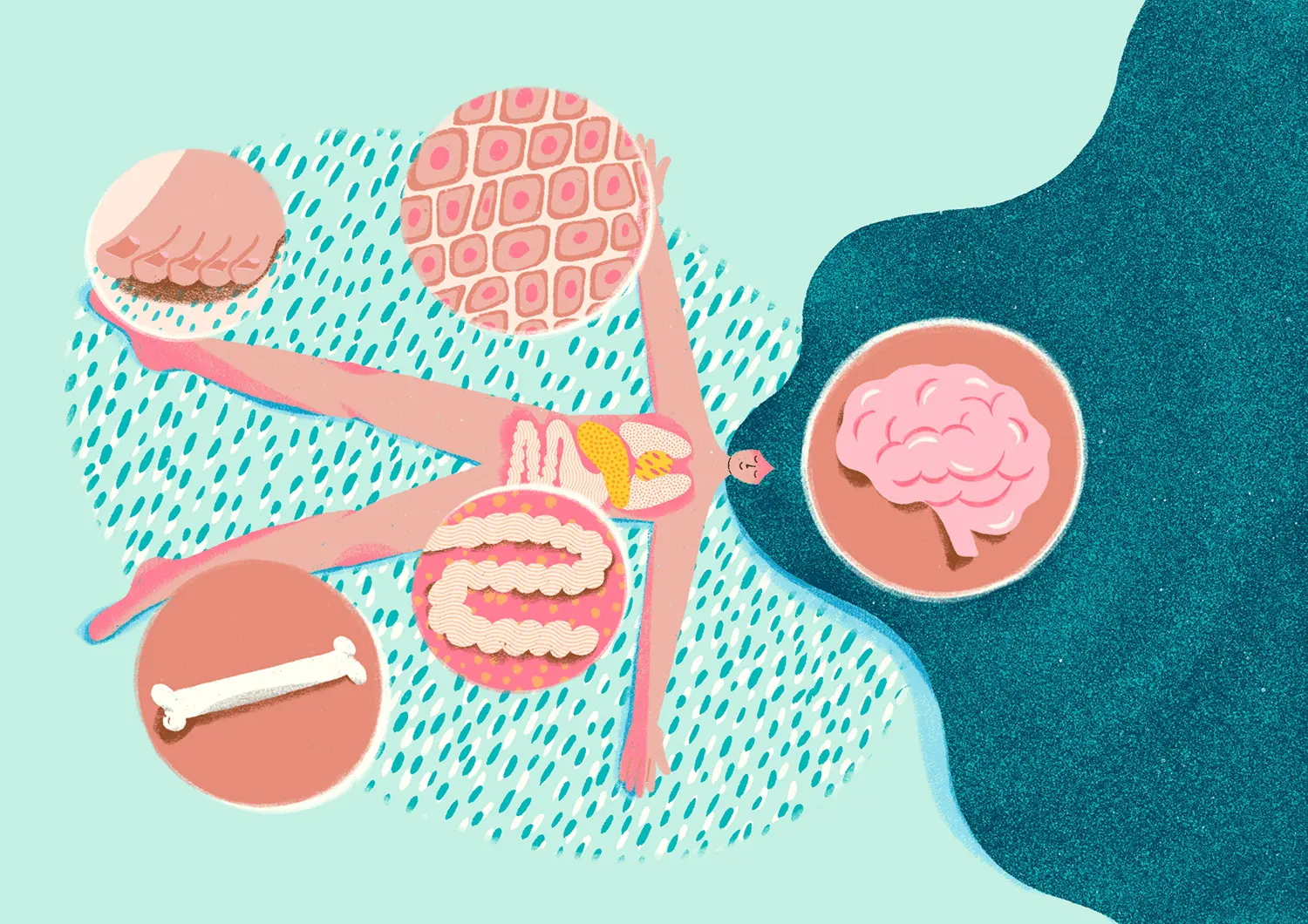
Whether it’s “193” or “153”, “ugly cute” or “the goddess of beauty”, we can see how much we focus on appearance by the nicknames we used to describe others. These nicknames may be innocuous, yet we can learn that one’s appearance can create a subtle but significant impact on one's body image, that is, how we perceive our bodies and associated feelings and behaviors that the perception of our bodies can bring.
Evaluation of body occurs everywhere in our daily life. Starting from saying good morning to yourself in the mirror, dressing up, to reading news, browsing Instagram and Facebook or other social media platforms - we see numerous faces and bodies throughout the day. Our bodies serve as a home for our souls, and its beauty is determined by our own aesthetics. However, body image is not only formed by ourselves, but also by external factors such as our friends and family, the society, the media, popular culture, and so on. We may internalize social values and norms, leading to an alteration in body image.
In recent years, the discussion on body image became more controversial and many people are talking about it, such as the debate on wearing yoga pants in the public, the pop song "Goddess" by Joyce Cheng that addresses societal stereotypes and standards towards what constitutes beauty, and ViuTV's unconventional beauty contest "Extra Beauty" that “claimed” to challenge traditional beauty standards.
As the discussion concerning body image blossoms, body image itself also becomes a more aggressive weapon. For example, in the discussion on Keung To's performance in the Ultimate Song Chart Awards Presentation 2023, some judged on Keung’s unsatisfactory performance while some focused on Keung’s body shape, describing him as "rotund". In Netflix's reality TV show "Terrace House", Kimura Hana committed suicide after a confrontation in the show which led to a deluge of bullying and abuse online. Cathy O'Neil, author of "The Shame Machine," argues that the rise of social media has turned public shame into a weapon that can hurt or even kill, describing it as "the weaponization of shame”.
Not only are celebrities being scrutinized over their physical changes, so is the general public. In the era of information abundance, the general public is also vulnerable to scrutiny and become “objects of gaze”. We may have body surveillance, habitually monitoring our physical appearance; if we fail to meet beauty standards, we may face body dissatisfaction, body anxiety, and even body shame.
When the body's self-image is becoming less and less "self-defined" and external voices are becoming rowdy, how can we view our body and build a kind relationship with it?
Passive objectification vs. autonomous self-objectification
In recent years, we have heard a lot about "objectification", but what exactly is it? Martha Nussbaum, a philosopher, has suggested that seven notions are involved in objectification:
- Instrumentality: Objectifiers view the object as a tool for their purposes
- Denial of autonomy: Objectifiers treat the object as lacking in autonomy and self-determination
- Inertness: Objectifiers view the object as unable to change and lack of action
- Fungibility: Objectifiers disregards the uniqueness of the object, perceiving it as something that can be replaced
- Violability: Not respecting others boundaries
- Ownership: Objectifiers treat the object as something that is owned by another
- Denial of subjectivity: Objectifiers treat the object as something whose experiences and feelings need not be taken into account
We often read quotes like “outer beauty pleases the eye. Inner beauty captivates the heart.”, "an interesting soul is one of a kind". In contrast, objectification is defined as the denial of a soul's uniqueness and autonomy, viewing a human being as an object. For instance, in typical slimming and beauty advertisements, the typical message conveyed is that women can become the object of others' gaze by having a more glamorous appearance, disregarding their personalities and talents; at this level, the objectification of women becomes a tool for businessmen to make profits and achieve their goals.
"Objectification" is not only for women. We sometimes hear terms like "himbo", "young hunk", “wallets’’, and these are examples of male objectification. These words tend to focus on the practical value or physical appearance of men rather than their personalities.
The objectification of the opposite sex, the same sex, and the definition of objectification are often debated topics. The Manchester Art Gallery took down a 19th century painting because of the way it portrays women (showing lots of female flesh); some critics argued that this is a censorship of literary works and ironically inferred that sculptures by artists like Michelangelo are also suspected of objectifying men.
At another level, some people may show self-objectification, in which they internalize external perceptions and values on body image. They monitor and judge their own bodies using these standards. Some studies suggest that the process of taking selfies and retouching photos may internalize unrealistic appearance standards, and in turn reinforce the self-objectification mindset by attempting to idealize their body image.
Another kind of self-objectification is more autonomous, as it is initiated by one's own will and driven by oneself, for example, internet influencers putting their photos on the Internet for subscriptions. They see themselves as "items" to be viewed and evaluated, derive satisfaction and superiority from it, and may even monetize it. However, they believe that the power is in their hands and they can stop when they want to (e.g., by removing the pictures from the platform). They claim that this is an autonomous self-objectification.

(Wong Kar Wai, TVMost host, wore yoga pants in Causeway Bay to mock the comments that women should not wear yoga pants on the street.)

(Adidas shared uncensored topless photos featuring women's breasts to promote sports bras. There were plenty who quickly mocked the campaign, arguing it is objectification of female bodies; the brand claimed that they believe women’s breasts in all shapes and sizes deserve support and comfort.)

(Many superhero movies have been criticized by the media for overly objectifying the characters.)


